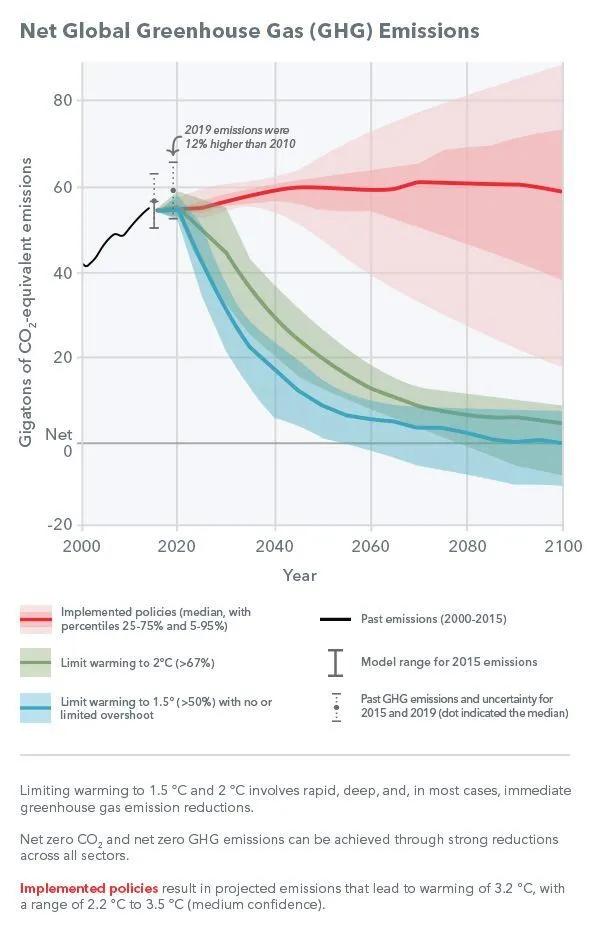A recent government climate report has come under scrutiny as scientists involved in the research claim their findings were misrepresented, sparking a debate over the accuracy and integrity of official climate communications. According to multiple experts, the report released by federal agencies selectively emphasized certain data points while downplaying or omitting others, potentially distorting the overall scientific consensus on climate change. This dispute highlights ongoing challenges in translating complex environmental science into public policy and underscores the critical need for transparency in reporting.
Scientists Raise Concerns Over Misrepresentation in Latest Government Climate Report
Leading climate scientists have voiced strong objections to how their findings were portrayed in the recent government-issued climate assessment. According to multiple experts involved in the original studies, key data points were altered or selectively presented to downplay the urgency of environmental degradation and its projected impacts. This accusation raises troubling questions about transparency and scientific integrity in policy-advisory processes, as the report plays a crucial role in shaping national climate strategies and funding priorities.
Experts highlighted several specific areas of concern, including:
- Temperature projections: The report reportedly omits extreme warming scenarios that many peer-reviewed studies predict.
- Emission timelines: Alterations in the timing of greenhouse gas concentration peaks, which affect mitigation policy urgency.
- Impact severity: Downplayed risks to vulnerable ecosystems and weather extremes.
| Original Finding | Report Representation |
|---|---|
| +3°C by 2100 under high emissions | “Likely range” capped at +2.5°C |
| Rising sea levels threaten 500 million | Impacts framed as uncertain or minimal |
| Increased drought frequency in tropics | Drought risks largely omitted |
Detailed Analysis Reveals Key Scientific Findings Altered or Omitted
Recent scrutiny from scientific communities reveals that crucial data and interpretations have been either modified or excluded in the latest government climate report. Experts claim that the alterations significantly downplay the severity of projected temperature increases and the urgency required for carbon emission reductions. According to multiple sources involved in drafting the original research, these changes distort the findings that underscore accelerating ice melt rates, ocean acidification, and extreme weather events. Such editorial decisions risk misleading policymakers and the public by presenting a less alarming narrative than warranted by the empirical evidence.
The impact of these modifications extends beyond environmental prognosis; they also affect policy recommendations and funding priorities. Scientists warn that omitting or softening key points could delay critical climate action and weaken international cooperation efforts. A breakdown of altered elements highlights:
- Temperature Projections: Peak warming thresholds increased without sufficient context.
- Sea Level Rise: Recent acceleration trends omitted from summary sections.
- Carbon Budget: More optimistic figures replacing conservative carbon dioxide limits.
- Extreme Weather Data: Selective exclusion of high-impact event frequency.
| Scientific Element | Original Data | Report Version |
|---|---|---|
| Projected Global Warming by 2100 | 2.8°C ± 0.3°C | 2.2°C ± 0.4°C |
| Sea Level Rise Rate | 3.6 mm/year | 2.8 mm/year |
| Remaining Carbon Budget (Gt CO2) | 400 | 550 |
Experts Advocate for Transparent Revisions and Increased Collaboration in Future Assessments
Leading climate scientists are calling for a more transparent approach in the revision of government climate assessments. They argue that the current process, often opaque and tightly controlled, risks misrepresenting key scientific findings. Transparency, they assert, is not only crucial for scientific integrity but also essential for public trust in climate policies. Experts stress that future reports should include an open dialogue between authors, reviewers, and policymakers to ensure that the nuances of scientific data are accurately conveyed without political interference.
Moreover, collaboration across disciplines and institutions is highlighted as a critical factor for improving the accuracy and credibility of these assessments. Experts recommend implementing structured collaboration frameworks that encourage:
- Inclusive peer review: Involving a wider range of scientific experts to minimize bias.
- Clear communication channels: Facilitating real-time feedback between scientists and report editors.
- Regular updates: Allowing for continuous incorporation of new data and findings throughout the drafting process.
| Element | Proposed Change | Expected Benefit |
|---|---|---|
| Revision Process | Open public logs of changes | Increased accountability |
| Collaboration | Cross-institutional panels | Enhanced data accuracy |
| Report Access | Early drafts shared with stakeholders | Improved stakeholder trust |
Future Outlook
As the debate over climate policy intensifies, the controversy surrounding the government’s latest climate report underscores the critical need for clear and accurate communication of scientific findings. Researchers emphasize that misrepresenting data not only undermines public trust but also hampers effective action on climate change. Moving forward, transparency and collaboration between scientists and policymakers will be essential to ensure that climate reports faithfully reflect the complexities and urgencies highlighted by the scientific community.
